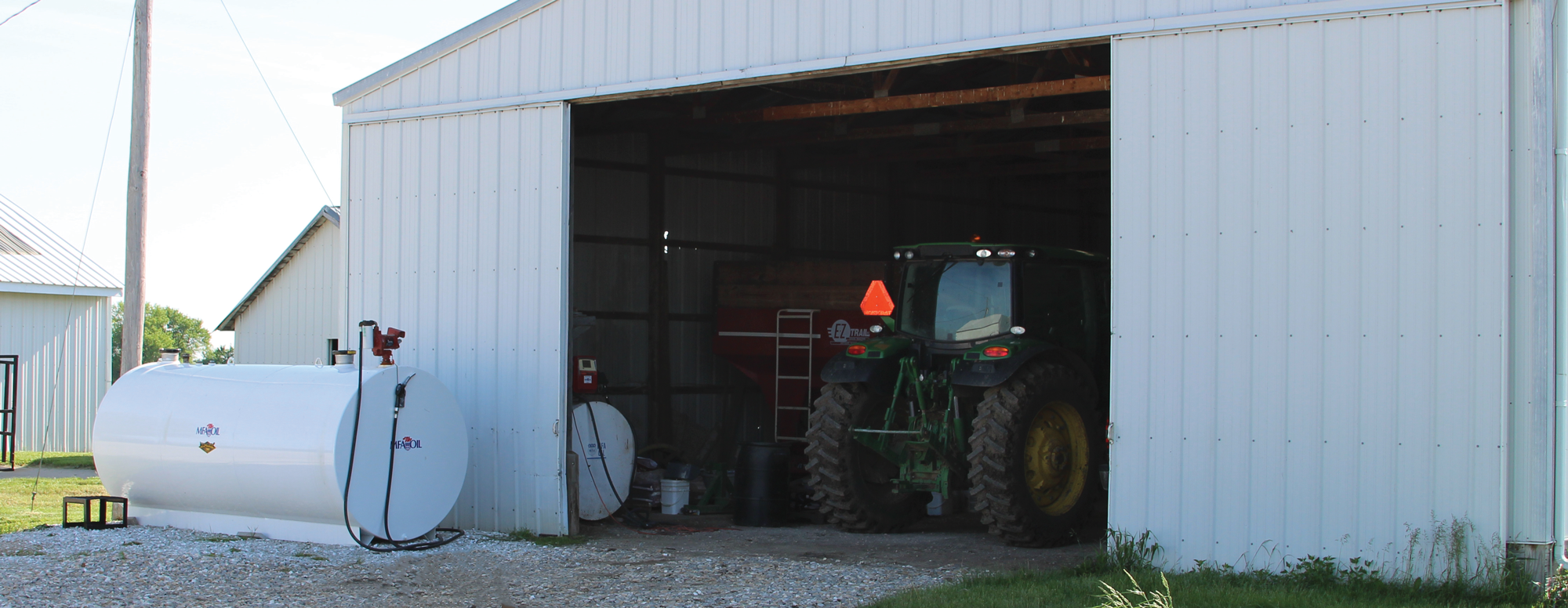
Four Tips to Improve Fuel Tank Maintenance
November 4, 2017
Written By Michelle Cummings
Fuel tank maintenance is an indispensable part of ensuring the quality of diesel fuel. Incorporating a preventative tank care plan protects stored fuel and maximizes the service life of diesel-powered equipment. Don North, MFA Oil director of product development and quality control, offers four important tips for proper tank maintenance.
1. Change the Fuel Filter Twice a Year
One way to easily care for a storage tank is to replace the fuel filter every six months. Changing the filter prevents sediment and other fuel contaminants from building up inside a storage tank.
“Typically a 10 micron filter is recommended to prevent and remove fuel contamination,” says North. “Using a good 10 micron filter on your transfer pump will help reduce contaminated fuel in your fleet and help prevent engine damage.”
2. Paint Your Tank White
Simply painting your fuel tank white will help prevent one of the most common maintenance issues: water contamination. Condensation is a common way water finds its way inside a tank and contaminates fuel. Tanks painted white stay cooler, which lessens the amount of condensation produced when temperatures fluctuate. Fuel contaminated by water has reduced lubricity and can cause pump and injector failures.
Additionally, tanks with water contamination are susceptible to bacteria growth, which can lead to plugged fuel filters and have the potential to spread from storage tanks to equipment fuel tanks. If your fuel tests positive for bacteria, you need to use a biocide to correct the issue. Biocides are available from the MFA Oil laboratory, after recommendation.
A water gauge can help you detect water contamination in tanks, but there is a cheaper option. You can check for water by smearing a stick with water-finding paste and dipping it in the tank. If the paste changes color, you have a water contamination problem.
3. Rotate and Clean the Tank Regularly
Frequent fuel rotation is important in maintaining fuel quality. Having the right size tank with regular rotation helps preserve the quality of your fuel and increase the life of the tank.
“People often fail to completely fill their tank with fuel,” says North. “If there’s open space at the top of the tank, it can lead to condensation, rust and fuel contamination. This is why it’s important to make sure you have a properly sized tank.”
If sediment or water is suspected to be in the tank, or a rotten egg smell is present, a deep clean may be necessary. Clogs in fuel transfer pumps less than six months old are another sign of sediment presence.
Safety is important to consider when deep cleaning tanks. North recommends contacting MFA Oil or a professional tank cleaning company to determine ways to clean the tank in the safest and most efficient manner possible.
4. Purchase Premium Diesel Fuel
North says the easiest way to ensure fuel quality is to start with a premium diesel fuel.
“We formulate our BOSS Performance Diesel with oxidation inhibitors and fuel stabilizers that help improve the storage life of the fuel in the tank,” North says. “If you’ve got a significant amount of money invested in your fleet, it only makes sense to buy premium diesel fuel to protect that investment.”
Following these tips will help protect the quality of your fuel and integrity of your tank, while simultaneously keeping equipment running effectively and dependably.

